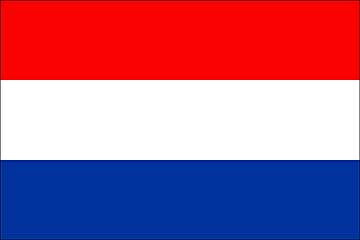Amsterdam, Staten-Generaal
<Reporter> Prime Minister De Vries, how do you plan to deal with the ongoing tribal conflict in the Congo?
<Prime Minister Christofoor De Vries> Thank you for asking, young lady. My plans for dealing with tribal conflict in the Congo are as follows: sell them watches. Everyone likes watches. Why? Because you can tell time, they're shiny, and they say you're distinguished; look, follow me here. Are you following me?
<Reporter> Uhh, yes, Prime Minister.
<De Vries> Great. You're a guy, you have a watch. It's expensive, it's an
expensive watch you have places to go, you have to know what time it is. But you're not some schlub from the factory, am I right? Of course I am. You want to know what time it is, because you have places to go, but,
BUT -- and keep with me here, because this is the important part -- you want to do it in style. So you buy an expensive watch, because you have places to go and be, but you're also stylish and important.
<Reporter> Thank you, Prime Minister.
<De Vries> And you are welcome, reporter. Any other questions?
<Other Reporter> Prime Minister, can you confirm or deny the rumors that you have ten mistresses?
<De Vries> These allegations are baseless, false, and frankly insulting. I have twenty. Yes, you in the back.
<Other Other Reporter> Prime Minister, can you tell us your plans for dealing with the communist threat?
<De Vries> Plans? Yeah, I have plans. Do you know why? Because I'm not a dirty red pinko commie sicko. That's what separates us from them, because we have
plans. It's what separates us from the animals. In fact, do you know what that makes them? Animals. Communists. Animals. Communists
ARE animals. Get that down. Are you writing that down? Well?
<Reporter> Yes, Prime Minister.
<De Vries> Good. Because writing things down is what separates us from the animals -- commies. Come on people, keep the questions coming.
<Reporter> Prime Minister, do you have anything to say regarding the proposed "Industrial and Infrastructural Revitalization Plan"?
<De Vries> Yes. Do you know why we need to have a powerful industrial machine? No, of course you don't. You didn't go to the school I went to, your family didn't build the political imperial machine from the ********ing rubble of the Napoleonic Wars. Your great-great-whatever granddad didn't tell William II to grow his mutton chops, did he? No, he didn't. So here's why industry is so important.
<De Vries> You know how many pipes those McPinkoCommies over there smoke? I can promise you that we will smoke more, smoke them faster, and sure as hell do it with more style. As a matter of fact, our cigars are better, too. Sure, easily better than whatever Siberian weed those Mongols can cook up. Why? Do you know why? Innovation.
INN-O-VATION. While they're outside, figuring out which cow gives more milk, or who can take the most sticks to the head without bleeding, we're in factories doing stuff. Not the kind of stuff that occupies time, but the kind of stuff that gets other stuff
DONE. And that is why.
<Reporter> Thank you, Prime Minister.
<Other Reporter> Prime Minister, can you comment on your opponent's position regarding downgrading military funding?
<De Vries> Yes. My opponent is wrong. He is very, very wrong. The man is fundamentally and intrinsically wrong. Are you getting that? I don't see you writing. My opponent is wrong. Write that down, it's important, you'll want to remember it. You will want to tell your children that Christofoor De Vries told you that his opponent was wrong.
<Reporter> Yes, Prime Minister.
<De Vries> Did I say I was done?
Did I say I was done, reporter?
<Reporter> No, Prime Minister. Please continue.
<De Vries> You're damn right I'll continue. You'll thank me later. My opponent is wrong because this glorious Empire needs a great military, a greater military, the best military. Follow me here. You know your friend's military? That guy next door? His name is Sergei. Sergei McPinkoCommie. Just take my word for it. We want a larger military than him. Not just larger, better. I am here to tell you that we, the Dutch nation and its people, are here to keep up with the McPinkoCommies. Sergei McPinkoCommie. We're out for you, guy.
<Reporter> If I may, Prime Minister, is the focus numbers or technological and training superiority?
<De Vries> All of that stuff. All of that stuff you just said, the focus is all of it. All of it is number one. We can have multiple number ones, we use a base ten system, so you can use number one again and again and again. It's all number one.
<Reporter> I... See.
<De Vries> Yes, you're not blind. That's good. I'd love to answer more questions, but I'm a very busy man. Communism won't fall apart, descend into a manic depression, and lie whimpering in the corner like a pathetic shadow of its former self on its own. You're welcome for my time.








